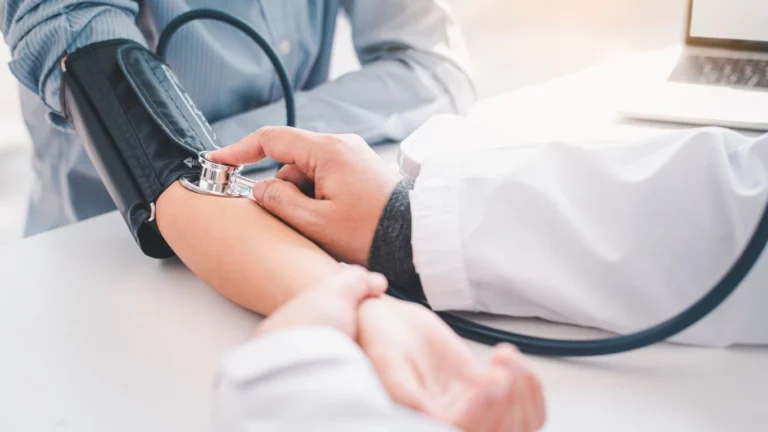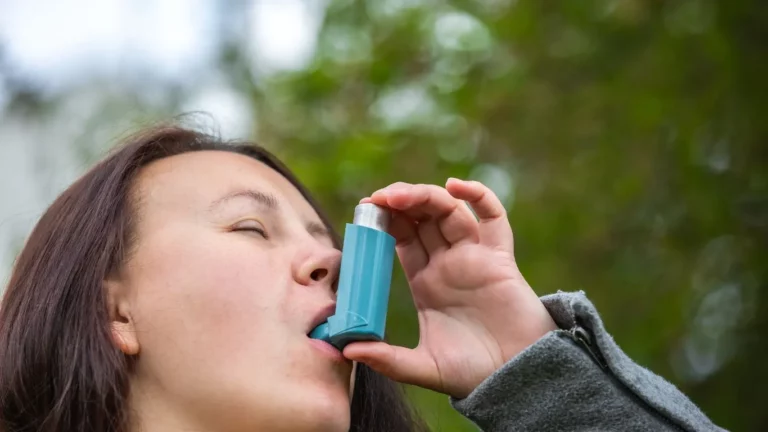How to Manage GERD Long-Term: Tips, Strategies, and Lifestyle Changes
Managing GERD long-term doesn’t have to be overwhelming. In this article, we dive into easy-to-implement tips and strategies to help you control gastroesophageal reflux disease, prevent flare-ups, and improve your quality of life.
GERD (gastroesophageal reflux disease) is one of those chronic conditions that can easily sneak up on you. One moment you’re enjoying a spicy meal, and the next, you’re feeling that familiar burn in your chest. Over time, GERD can become a constant presence in your life, but managing it long-term is possible with the right strategies. And guess what? It doesn’t always mean popping pills every day. So, let’s talk about how to handle GERD without it taking over your life.

Understanding GERD and Why It Happens
Before diving into the long-term management tips, let’s make sure we’re all on the same page about GERD. Simply put, GERD is a digestive disorder where stomach acid frequently flows back into the esophagus, irritating its lining. This acid reflux can cause that burning sensation in your chest (aka heartburn) and even lead to more serious complications if left untreated.
But why does it happen? Well, the valve that’s supposed to keep stomach acid where it belongs—the lower esophageal sphincter (LES)—weakens or relaxes when it shouldn’t. When that happens, the acid escapes up into the esophagus, causing discomfort. And if you experience this on a regular basis, that’s when GERD becomes a concern.
Long-Term GERD Management: It’s All About Lifestyle Changes
Managing GERD long-term isn’t just about relying on medications; it’s about making consistent lifestyle changes that reduce symptoms and prevent flare-ups. Let’s break down some of the best ways to handle it:

1. Watch What You Eat
We all know the saying “You are what you eat,” and with GERD, this couldn’t be truer. Certain foods are notorious for triggering GERD symptoms. Spicy foods, acidic fruits, chocolate, and caffeinated drinks can cause the LES to relax too much, letting acid escape. So, keeping track of what you eat and how it affects your body is crucial.
Real talk: it’s not about cutting out all the tasty foods you love but about finding balance. For instance, you don’t have to say goodbye to coffee forever, but you might want to cut back and monitor how your body reacts. Here are some foods you might want to keep an eye on:
- Acidic foods like tomatoes and citrus fruits
- Spicy dishes (sorry, taco night might need some tweaking!)
- Fried and fatty foods (yep, those extra greasy fries are a no-go)
- Chocolate and mint (they both can cause the LES to relax)
2. Eat Smaller, More Frequent Meals
Instead of eating three large meals a day, try breaking your meals down into smaller portions spread out over the day. Big meals can stretch your stomach, which can increase pressure on the LES, leading to acid reflux. By eating smaller portions more often, you reduce that pressure and minimize the chance of reflux.
It’s also worth noting that late-night meals are a big culprit when it comes to GERD. Avoid eating at least 2-3 hours before bedtime. The upright position during the day helps keep that acid down, but when you lie down, gravity isn’t on your side!
3. Stay Active (But Don’t Overdo It!)
Regular exercise is a must when it comes to managing GERD long-term. Physical activity helps keep your digestive system functioning properly and can reduce the frequency of symptoms. But don’t get too excited—intense, high-impact exercise like running or heavy lifting might make symptoms worse by putting extra pressure on your stomach.
Opt for gentler activities like walking, swimming, or yoga. These types of exercises not only promote good digestion but can also help with stress management, which plays a huge role in GERD flare-ups.

4. Maintain a Healthy Weight
If you’ve ever wondered how weight affects GERD, here’s the scoop: excess weight, especially around your belly, can increase pressure on your stomach and LES, making acid reflux more likely. Managing your weight is a key part of long-term GERD control. Even a small amount of weight loss can significantly reduce symptoms and improve your overall quality of life.
So, if you’re carrying a bit of extra weight, focus on a gradual, sustainable weight loss plan that includes healthy eating and exercise. The long-term benefits go beyond GERD control—they include better heart health, more energy, and a healthier lifestyle overall!
5. Elevate Your Head While Sleeping
GERD doesn’t rest when you sleep. In fact, lying flat can trigger acid reflux since it allows acid to flow upward into your esophagus. The solution? Elevate the head of your bed by about 6-8 inches to keep that acid where it belongs.
If propping up your bed feels a bit much, consider investing in a wedge pillow. Just be sure your whole body is tilted, not just your head, to maintain proper digestion. It’s a simple yet effective trick that can make a world of difference in your GERD management.

GERD Medication: When to Turn to Medications
While lifestyle changes are essential, sometimes medication is necessary, especially if GERD symptoms persist despite your best efforts. There are several types of medications that can help manage GERD symptoms:
- Antacids (e.g., Tums, Maalox) – These work by neutralizing stomach acid and provide quick relief.
- H2-receptor antagonists (e.g., ranitidine, famotidine) – These reduce the amount of acid your stomach produces.
- Proton pump inhibitors (PPIs) (e.g., omeprazole, esomeprazole) – These block acid production more effectively and are often used for long-term GERD treatment.
Of course, it’s always best to discuss medication options with your doctor. They can help determine which treatment is most appropriate for your situation.
Conclusion
Managing GERD long-term doesn’t have to be a constant battle. With a few lifestyle changes, some mindfulness about your eating habits, and regular exercise, you can keep symptoms in check and improve your quality of life. Remember, consistency is key. If lifestyle changes aren’t enough, your doctor can help guide you through other treatment options, including medications.
Appendices
FAQs
- Can I still enjoy spicy food with GERD? Spicy foods can trigger GERD symptoms, so it’s best to enjoy them in moderation or opt for milder versions to prevent flare-ups.
- Is it necessary to take medication for GERD? Medication may be needed if lifestyle changes aren’t enough. Always consult with your doctor for personalized treatment options.
- Does GERD improve with weight loss? Yes! Losing weight can reduce the pressure on your stomach and lower the frequency of acid reflux.
Related Table: GERD-Friendly Foods vs. Foods to Avoid
| Food Type | Recommendation |
|---|---|
| Oatmeal | Good choice! Low in acid and easy on the stomach. |
| Citrus Fruits | Avoid. High in acid, which can trigger reflux. |
| Lean Meats (Chicken, Turkey) | Good choice. Protein without the fat. |
| Spicy Foods | Avoid. They can irritate the esophagus. |
Disclaimer: The information provided in this article is for general informational purposes only and does not replace professional medical advice. Always consult with your healthcare provider for specific treatment recommendations.

Camellia Wulansari is a dedicated health writer specializing in digestive disorders, contributing valuable insights and information to the health and wellness community. With a passion for promoting well-being through knowledge, Camellia serves as a reliable source of expert content on healthusias.com.






